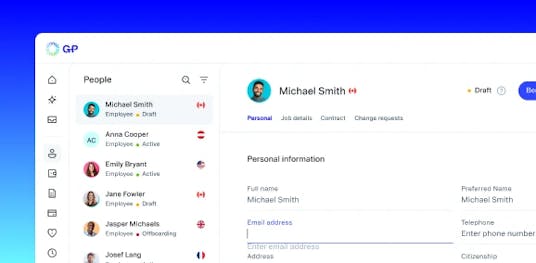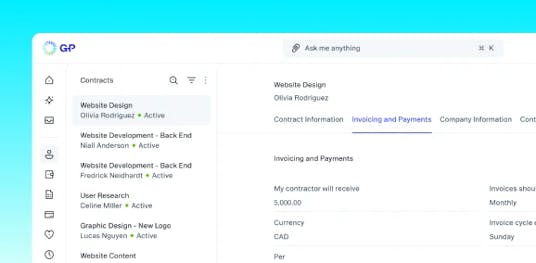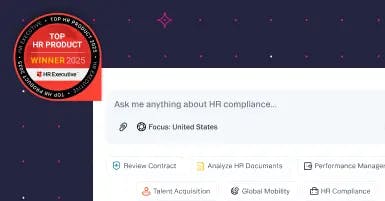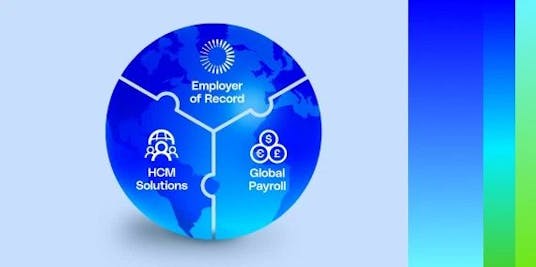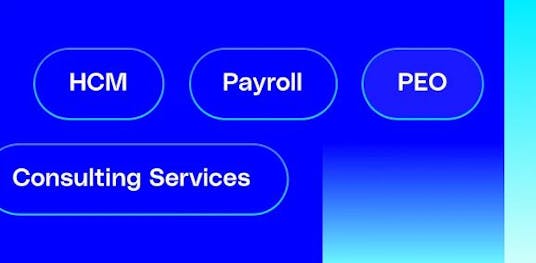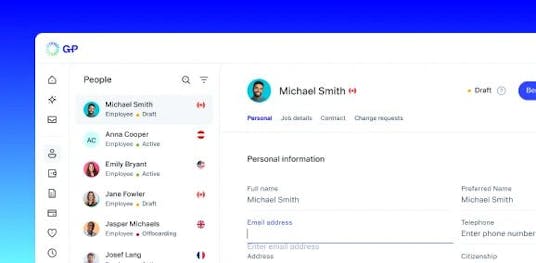Global business expansion allows you to tap into new markets and discover growth opportunities. Throughout your journey, you'll likely encounter cultural differences, legislation changes, business nuances, and other challenges. Partnering with an employer of record (EOR) is one of the best ways to make the process easier.
If you're wondering how to expand your large business or enterprise internationally, this guide can help.
Global workforce trends
The global workforce is changing. Many companies are investing in upskilling to help their teams adapt. According to the World Economic Forum, 70% of surveyed employers are expecting to hire staff with new skills, especially in AI, big data, and analytical thinking.
Global hiring offers you a wider talent pool and cost-effective work solutions. According to the 2025 Global Workforce Trends, the #1 roadblock to company growth for 41% of executives is local talent shortages.
Tips for expanding internationally
When thinking about what to consider when expanding a business internationally, the following tips can help.
1. Conduct an in-depth market analysis
Expanding your business internationally starts with understanding your new market. Legal and regulatory requirements can impact market entry and ongoing operations.
Do an in-depth market analysis to identify:
-
The scale of your target market
-
Competitors
-
Potential customers
-
Customers' buying habits
-
Customers' purchasing power
Assess the maximum revenue you can generate if you capture 100% of the market — and then how much you can realistically capture. Determine other market factors, such as pricing trends, customer needs, and regulatory environment.
2. Develop a localized go-to-market strategy
A go-to-market (GTM) strategy is a launch plan for your product or service. It reduces costly mistakes, like targeting the wrong audience or entering a saturated market. To create a successful strategy, consider:
-
Your ideal customer's challenges
-
How to create demand
-
What you offer and the problem it solves
-
Where to sell your product
-
Who your competition is
A GTM strategy is essential for companies of all sizes, even for established businesses. Historical successes don't guarantee future ones, especially in an untapped market.
3. Reconsider your organizational setup
Even if you're hiring remotely, you'll likely need to adjust your existing structure to accommodate your scaling operations. Your organizational structure should reflect company values, goals, and priorities.
-
Identify essential processes for your company's goals.
-
Structure departments and set up the chain of command.
-
Determine managers' scope of responsibility.
-
Balance centralization and decentralization.
A centralized approach positions decision-making at the top of the organization, while a decentralized approach distributes decision-making across teams. Many businesses rely on a single approach, but you need a balance of both to manage a global team.
4. Familiarize yourself with legal regulations
Each country has its own regulations. Noncompliance can lead to operational delays, penalties, and lawsuits. Understand how regulations affect your company, including taxation, liability, ownership rights, and operational flexibility. Certain industries have strict licensing and permit requirements.
Working with an EOR provider like G-P™ simplifies global expansion. An EOR manages compliance for you. Partner with an EOR to easily comply with tax regulations, streamline benefits processing, and hire globally in minutes, not months.
G-P gave us the flexibility to move fast. Previously, we had to go through the process of trying to research things in new markets like benefits, legal processes, hiring, firing, etc. It was far easier to have G-P provide that in-country support and insight. There's no doubt we could not have expanded as fast and as effectively as we have if not for our partnership with G-P
Nathan Jeune-Manning
Senior Manager, Global People Operations at Snyk.

5. Consider cultural sensitivity in recruitment
Learning each culture's communication style fosters respectful discussions and prevents misunderstandings. Develop cultural sensitivity by implementing unconscious bias training, using inclusive language for job ads, and conducting structured interviews.
G-P Gia™, our AI-powered global HR agent, can help you draft interview questions that follow anti-discrimination laws in your target country, so you can find the best fit for the role while complying with local regulations.
6. Create a brand standard for international teams
Brand standards communicate your purpose, values, and customer benefits. While resources help remote teams adapt easily, regular training is also essential. Online workshops or webinars ensure your branding remains intact regardless of your workforce's location. With Gia, you can easily create and translate essential HR documents into 50+ languages to keep cohesive brand standards.
7. Avoid the one-size-fits-all leadership style
International team managers must be flexible. Certain approaches or processes that work in one place may not work in another.
Successful global leaders do the following:
-
Encourage employees to thrive both independently and as part of a greater team.
-
Help employees set goals based on their unique aspirations.
-
Adjust their leadership style to fit cultural norms.
-
Use different types of communication to interact with employees.
-
Actively listen to employee feedback.
8. Adapt to rising challenges
Global expansion often comes with external challenges that are out of our control. For example, geopolitical instability can disrupt supply chains and economic volatility can impact exchange rates. You should create a detailed strategy to stay agile and manage risks before they escalate.
Top challenges for corporations expanding globally and how to overcome them
Some of the top challenges of global expansion include:
-
Language barriers: Hiring globally involves various languages. Use Gia to translate documents into 50+ languages and get jurisdiction-specific guidance on global employment practices in 50 countries and all 50 U.S. states.
-
Product or service adjustments: Adapting your product or service to another market involves strategy. Learn the local norms through your market analysis to mitigate cultural insensitivity.
-
Existing competition: Established competitors have already gained the locals' trust. As part of your GTM strategy, position your offerings based on your edge over the competition.
-
Financial investments: Global expansion requires an upfront investment. Consider the possible risks, such as economic volatility, and come up with a game plan if these issues arise.
-
Regulatory requirements: Noncompliance with local labor laws leads to legal, financial, and reputational issues. An EOR can help you maintain compliance. You can also use tools like Gia to review documents for compliance with local employment laws.
Tips for developing an international expansion strategy
Let's explore a few tips for expanding a business globally:
Balance local compliance with global policies
Evaluate the legal and regulatory landscape in each country where you plan to expand. Identify areas where local laws may conflict with global policies, and assess the risks associated with noncompliance. G-P can help you onboard talent, manage payroll, and adhere to local employment laws in multiple jurisdictions.
Build a culturally aware workforce
Immersing yourself in local cultures creates genuine connections among your global workforce. If you're hiring remotely, offering your team cultural awareness training helps with a smooth transition. Rotating leadership roles in meetings fosters a sense of shared responsibility and gives all voices the chance to be heard.
Accommodate time zones
Clear communication and updated protocols are essential in managing global employees. Managers can support distributed teams by:
-
Identifying overlapping hours
-
Using asynchronous communication
-
Rotating meeting times
-
Recording meetings and summarizing
-
Clarifying expectations around response times
-
Promoting empathy and awareness
Use technology for seamless expansion
HR-focused technology lets you manage global teams effectively without the high costs. G-P EOR helps you easily onboard and manage talent in 180+ countries, quickly and compliantly, without the hassle of entity setup. Or if you have specialized projects, G-P Contractor™ simplifies invoice management and contractor payment.
Streamline global expansion with G-P
As the recognized leader in global employment, G-P helps companies of all sizes hire, onboard, and manage global teams in 180+ countries, regardless of entity status. Our AI-powered global employment products and EOR solutions are backed by the largest team of in-country HR, legal, and compliance experts to streamline and simplify the entire global employment lifecycle.
Book a demo today.
